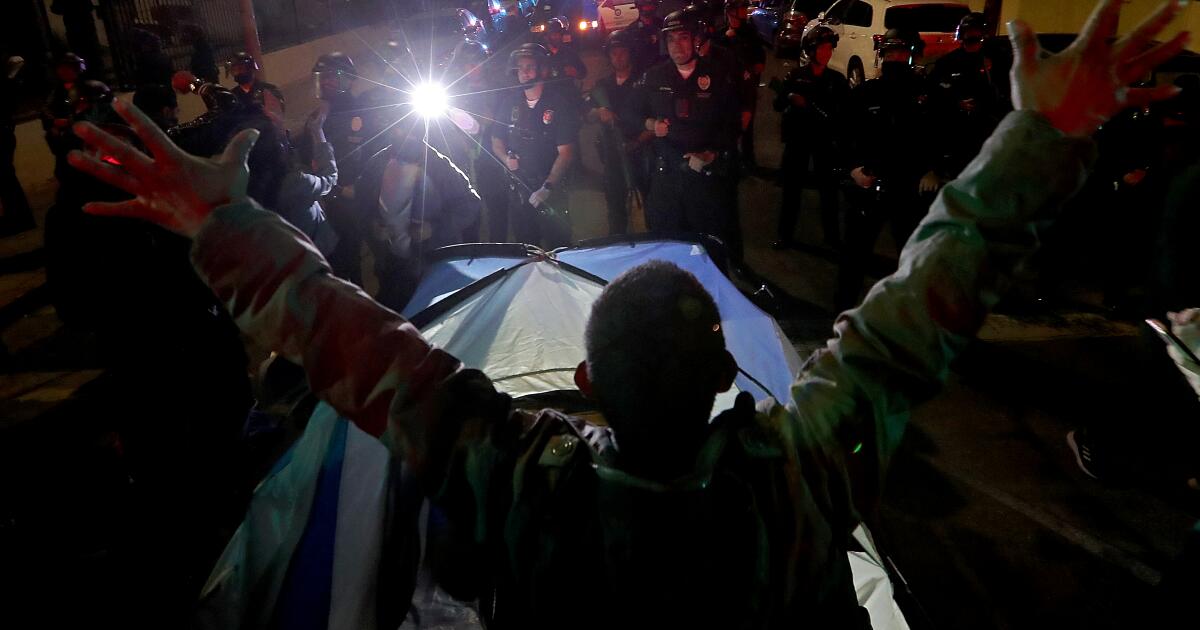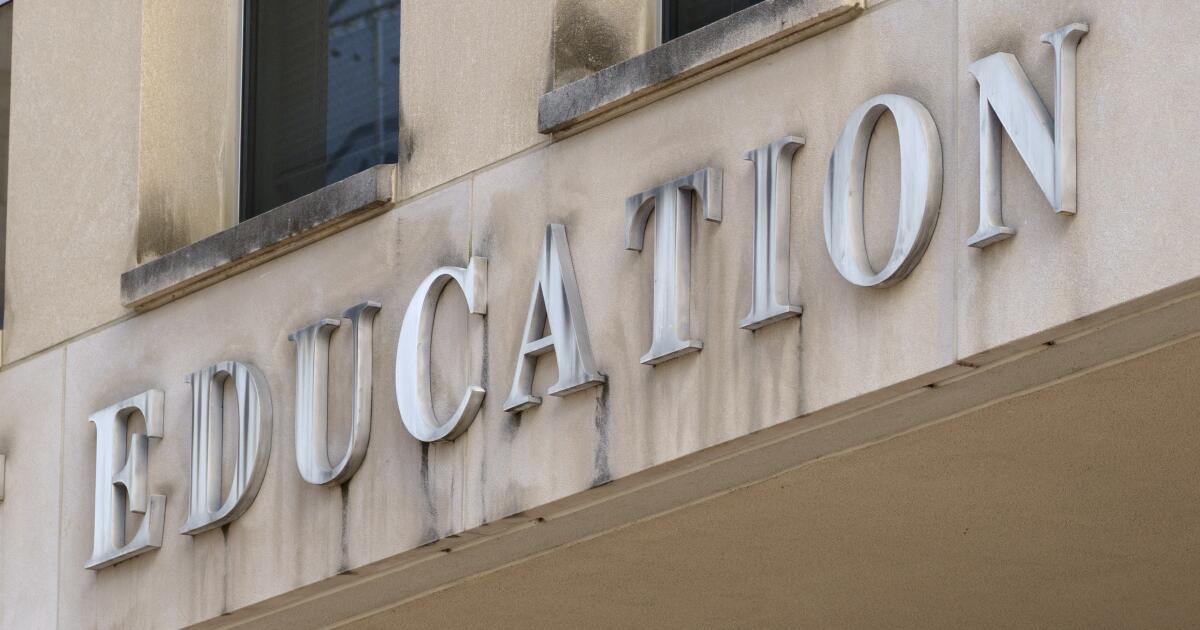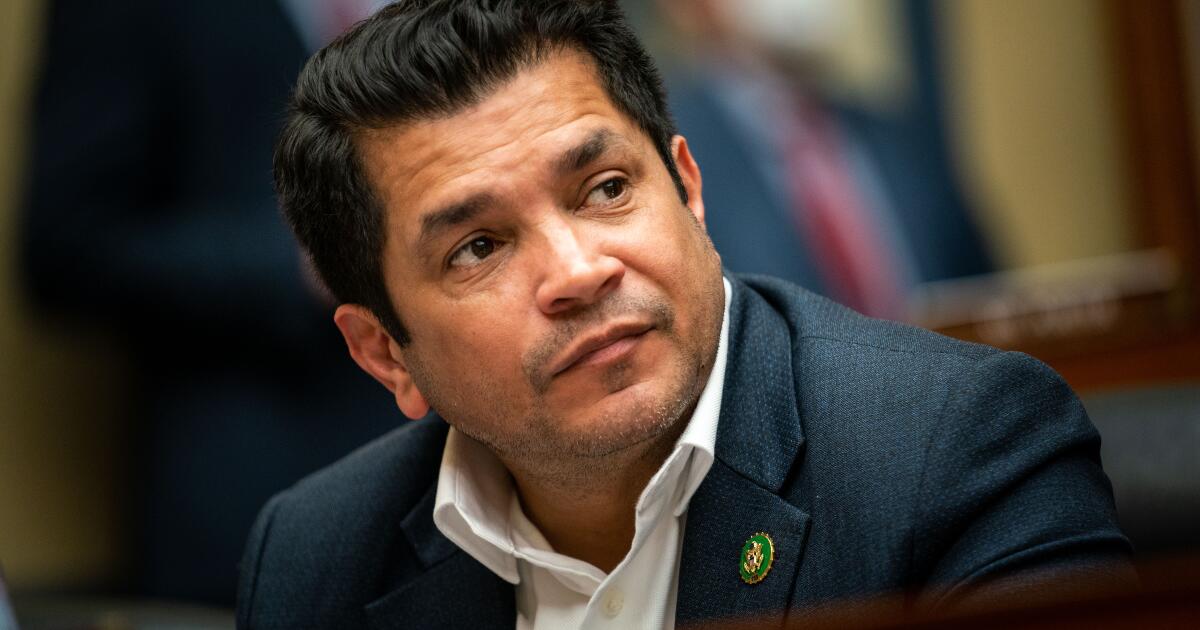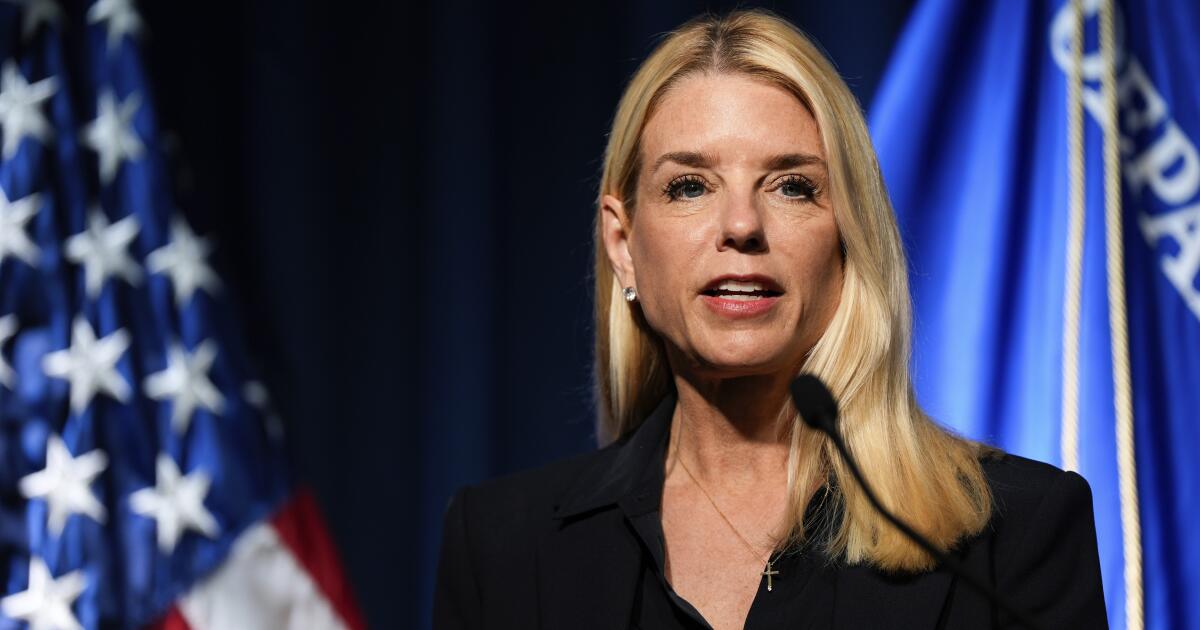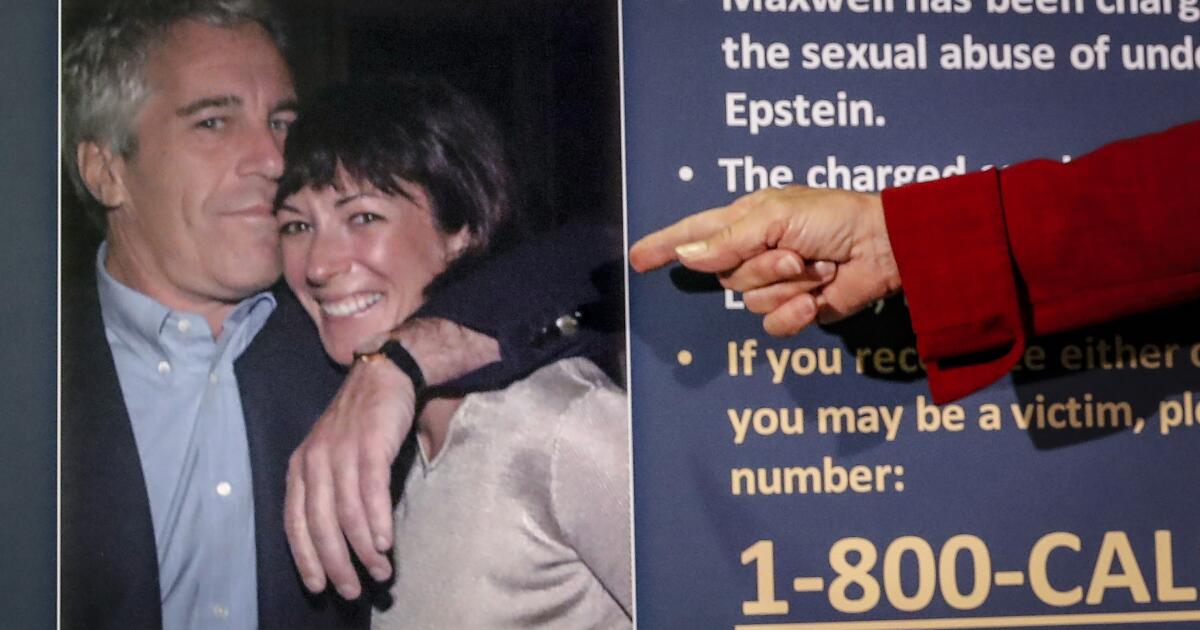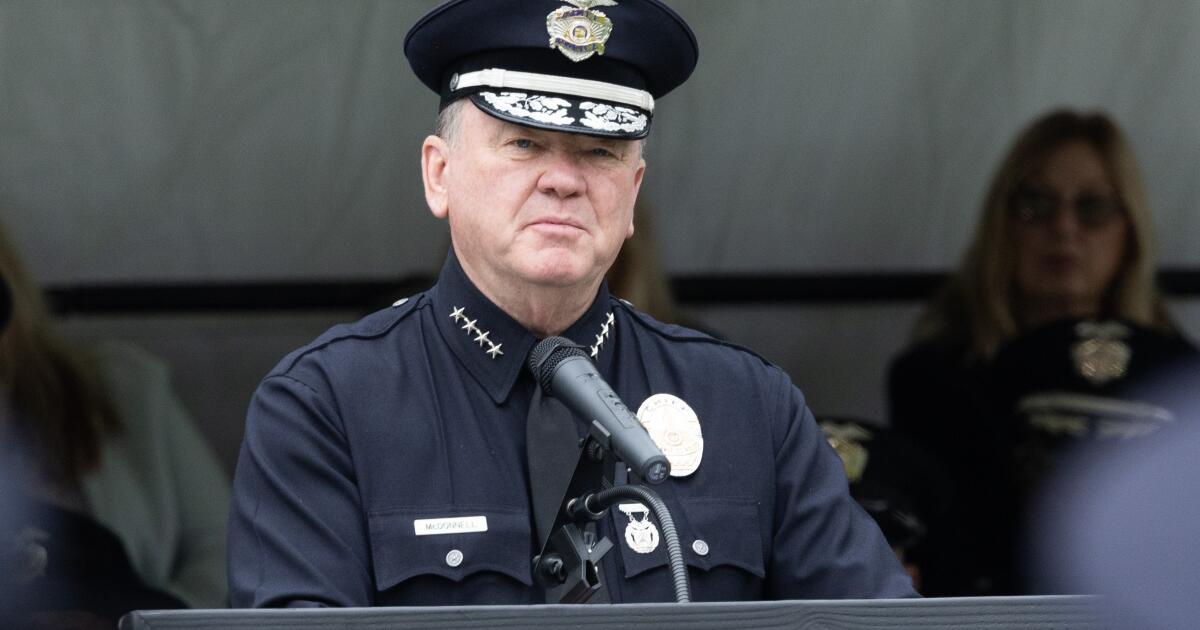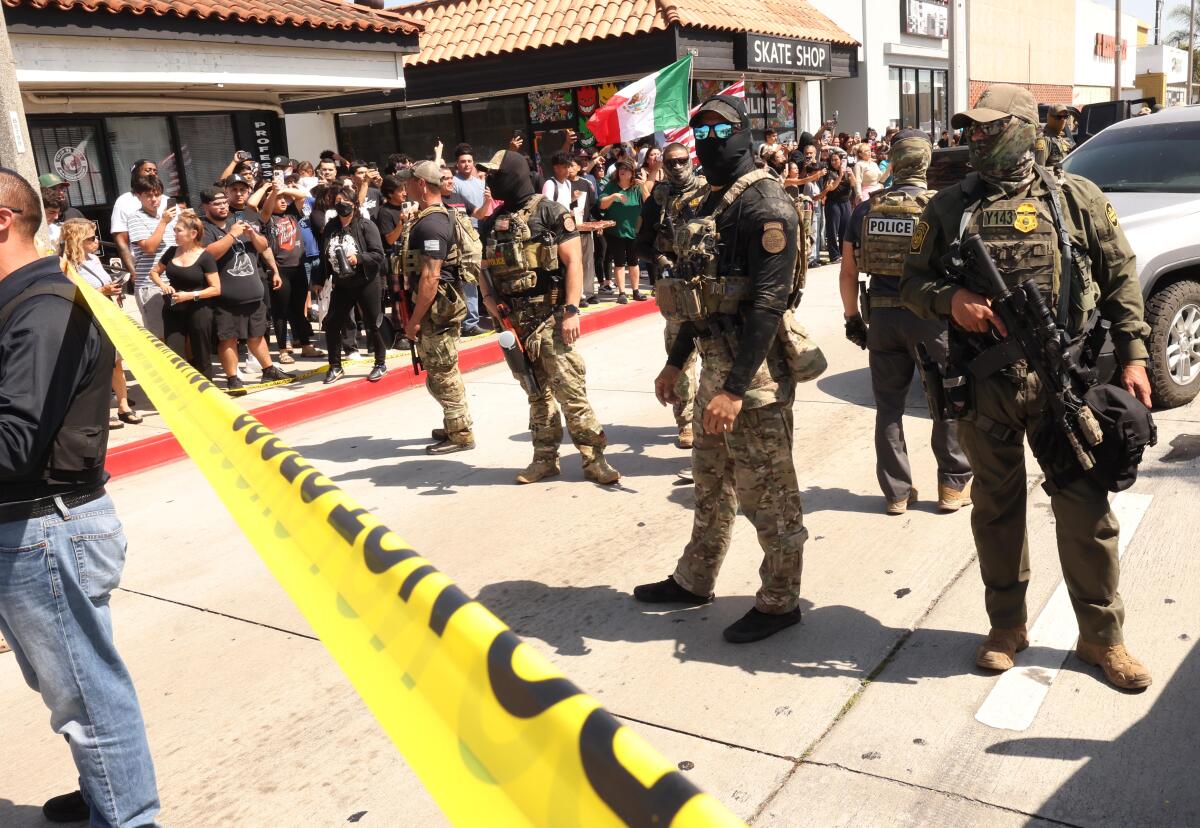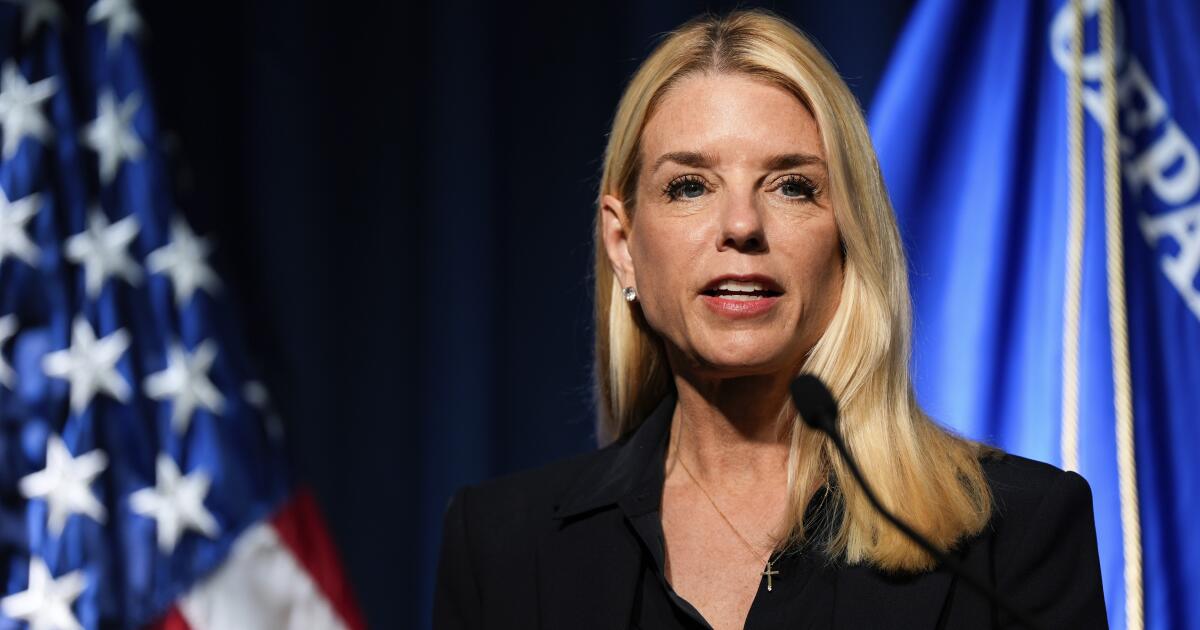No charges for L.A. County deputy who shot man in back in 2021
A Los Angeles County sheriff’s deputy who shot a man in the back in 2021 will not face criminal charges, according to records made public by the district attorney’s office late last month.
Los Angeles County prosecutors found there was “insufficient evidence” to prove Deputy Yen Liu was not acting in lawful self-defense when he shot Adrian Abelar at a Rosemead auto body shop four years ago, firing a round that fractured several vertebrae and nearly paralyzed him, according to court records and Abelar’s attorney.
Abelar, 29, had just thrown a gun from the car and was face down on the pavement when Liu opened fire at point blank range, according to body-worn-camera footage. Deputies were responding to reports that Abelar — a convicted felon who could not legally possess a firearm — had threatened to shoot several people at the auto body shop.
But when Liu and two other deputies arrived at the scene, they found Abelar sitting calmly in his car. The deputies approached Abelar, who lied about the fact that he was on probation. Abelar said he decided to flee because he feared if deputies found him with a gun, they would arrest him or kill him.
Abelar said he tossed the weapon as soon as he got out of the car. In video from the incident, deputies can be heard shouting, “Gun!” right before Liu closes in on Abelar, whose right arm is clearly outstretched and empty at the time Liu opens fire.
Ultimately, prosecutors decided the reported threats made by Abelar and the fact that he was in possession of a gun precluded them from charging the deputy.
“Since one reasonable interpretation of the evidence leads to the conclusion that Liu acted in response to an apparent danger, insufficient evidence exists to prove beyond a reasonable doubt that Liu did not act in self-defense when he shot Abelar in the back,” prosecutors wrote in a 10-page declination memo made public in late July.
Abelar’s case gained renewed attention in late 2023, when high-ranking members of then-Dist. Atty. George Gascón’s administration became concerned with the amount of time it was taking the sheriff’s department to complete its investigation of the shooting. There were only four other cases since 2013 in which more than two years elapsed between a deputy-involved shooting and a charging decision being made by prosecutors, according to a 2021 report by the L.A. County Office of the Inspector General. Such delays, the report said, reduce the chances of a successful prosecution.
“The D.A.’s office bent over backward to claim they can’t prove a criminal violation … they clearly can and don’t want to,” said Abelar’s civil attorney, Thomas Beck. He claimed the investigation was “purposefully stalled for more than two years.”
Liu has returned to active duty and is assigned to the Temple Station, where he worked when the shooting occurred, according to Nicole Nishida, a sheriff’s department spokeswoman. An internal review to determine whether or not Liu violated department policy has been launched, Nishida said.
Use-of-force experts who reviewed footage in the case previously told The Times that Liu’s decision to shoot was problematic.
“The guy clearly does not have a weapon in his hand and the deputy who is on top of him draws his firearm, jams it in the guy’s back and fires it immediately upon contact,” said Ed Obayashi, a lawyer and former Plumas County sheriff’s deputy who advises police departments throughout California about use-of-force incidents.
Abelar’s lawyer disputed claims made by Richard Doktor, the auto body shop owner, who summoned deputies to the scene by claiming Abelar had made threats and brandished a gun.
According to recordings made public by law enforcement, Doktor said Abelar arrived at his shop that day demanding car repairs because he was fleeing from the cops due to an active murder warrant. Doktor separately alleged to The Times in an interview that Abelar was threatening his employees with a gun.
While there was a warrant out for Abelar’s arrest on a probation violation at the time of the shooting, he was not wanted for any violent crime, according to the sheriff’s department. Abelar has not been charged with a crime in relation to the incident at Doktor’s shop.
Beck said statements given to the sheriff’s department by other auto shop employees do not corroborate Doktor’s claims. Neither the sheriff’s department nor the district attorney’s office responded to questions about the veracity of Doktor’s allegations. Doktor has also criticized the sheriff’s department’s response, contending Abelar was “no threat” when Liu fired his gun.
Doktor did not respond to phone calls and text messages seeking comment this week.
Abelar’s civil suit was settled last year for $700,000, according to Beck. But his client has not been paid yet and will not be able to claim that money for a while.
Abelar fell into homelessness after his “only living relative” died last year, Beck said. While living on the street, Abelar was arrested last May on suspicion of being a felon in possession of a firearm and ammunition, resisting arrest and having a forged driver’s license, records show.
In February, he pleaded no contest to the weapons charge and a sentencing enhancement for having a prior violent felony conviction and was sentenced to four years in state prison, records show. Even with jail credits, Abelar likely won’t get out of prison until 2028.



